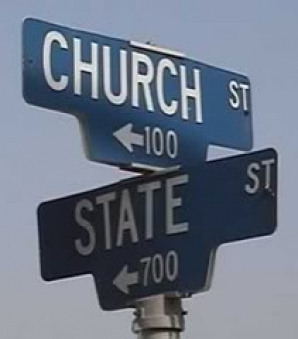 Congress has recently seen proposals that would permit religious organizations to endorse political candidates while receiving 501(c)(3) benefits. IRS rules prohibit partisan politicking by any organization ÔÇô religious or secular ÔÇô that receives tax exemptions under 501(c)(3). Churches, like secular non-profit organizations, have the option of forgoing tax-exempt status if they wish to endorse politicians, but taxpayer money in the form of tax exemptions for 501(c)(3) organizations cannot be used for partisan political activity. Even under current law, Alliance Defending Freedom has asked religious leaders to defy the prohibition on political endorsements on what it calls ÔÇ£Pulpit Freedom Sunday.ÔÇØ
Congress has recently seen proposals that would permit religious organizations to endorse political candidates while receiving 501(c)(3) benefits. IRS rules prohibit partisan politicking by any organization ÔÇô religious or secular ÔÇô that receives tax exemptions under 501(c)(3). Churches, like secular non-profit organizations, have the option of forgoing tax-exempt status if they wish to endorse politicians, but taxpayer money in the form of tax exemptions for 501(c)(3) organizations cannot be used for partisan political activity. Even under current law, Alliance Defending Freedom has asked religious leaders to defy the prohibition on political endorsements on what it calls ÔÇ£Pulpit Freedom Sunday.ÔÇØ
Fundamental fairness requires the U.S. tax code apply the same rules to all 501(c)(3) organizations, including registration and auditing requirements. Requiring compliance with regulations in order to show entitlement to tax-exempt status is a minimal and necessary burden on religious organizations ÔÇô a burden all other 501(c)(3) organizations already face. The courts must constantly balance the right to free exercise with the substantial secular interest in preventing illegal activity, and the national interest in the separation of church and state.
POLICY RECOMMENDATION: Religious organizations, including houses of worship, which voluntary opt-in to a tax-exempt status must follow the 501(c)(3) regulations in place strictly banning partisan politicking.

